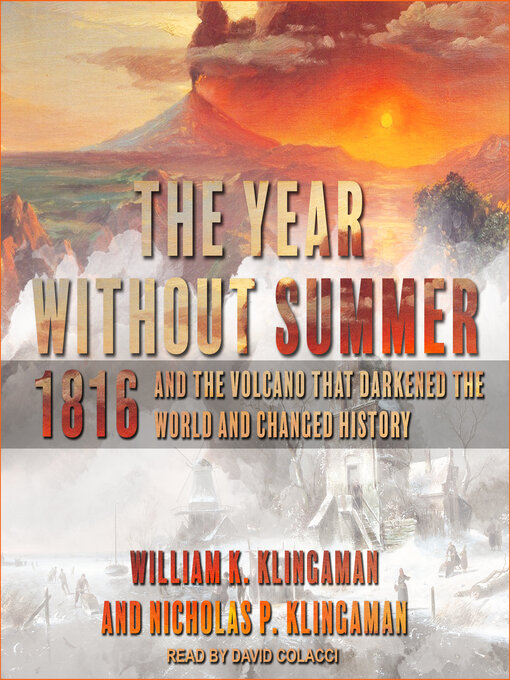The Year Without Summer
1816 and the Volcano That Darkened the World and Changed History
In the US, the extraordinary weather produced food shortages, religious revivals, and extensive migration from New England to the Midwest. In Europe, the cold and wet summer led to famine, food riots, the transformation of stable communities into wandering beggars, and one of the worst typhus epidemics in history. 1816 was the year Frankenstein was written. It was also the year Turner painted his fiery sunsets. All of these things are linked to global climate change—something we are quite aware of now, but that was utterly mysterious to people in the nineteenth century, who concocted all sorts of reasons for such an ungenial season.
Making use of a wealth of source material and employing a compelling narrative approach featuring peasants and royalty, politicians, writers, and scientists, The Year Without Summer by William K. Klingaman and Nicholas P. Klingaman examines not only the climate change engendered by the volcano, but also its effects on politics, the economy, the arts, and social structures.
-
Creators
-
Publisher
-
Release date
September 18, 2019 -
Formats
-
OverDrive Listen audiobook
- ISBN: 9781618038784
- File size: 329965 KB
- Duration: 11:27:25
-
-
Languages
- English
-
Reviews
-
Publisher's Weekly
December 3, 2012
On April 5, 1815, Mount Tambora in Indonesia exploded in one of recorded history’s most massive volcanic eruptions. In addition to releasing enough ash and pumice “to cover a square area one hundred miles on each side to a depth of almost twelve feet” and immediately killing more than 12,000 people, the blast rocketed enough sulfur dioxide into the stratosphere to “form more than 100 million tons of sulfuric acid.” Relying on newspapers, diaries (including that of Mary Shelley, who penned Frankenstein in 1816 ), and letters, William (The First Century: Emperors, Gods, and Everyman) and Nicholas Klingaman—a historian and meteorologist, respectively—demonstrate in excruciating detail how dramatically global weather patterns changed as a result: droughts, floods, and freezing temperatures decimated crops and led to famine and near-famine conditions worldwide. But talking about the weather—no matter how extreme—gets old. Little is gained, for example, to learn that in Maine on June 6, 1816, “one elderly gentleman spent the day chopping wood with a heavy coat on.” Like a cloud of fine ash, copious detail occludes the truly interesting political and migrational effects of the eruption. Agent: Daniel Bial, Daniel Bial Agency.
-
Loading
Why is availability limited?
×Availability can change throughout the month based on the library's budget. You can still place a hold on the title, and your hold will be automatically filled as soon as the title is available again.
The Kindle Book format for this title is not supported on:
×Read-along ebook
×The OverDrive Read format of this ebook has professional narration that plays while you read in your browser. Learn more here.

